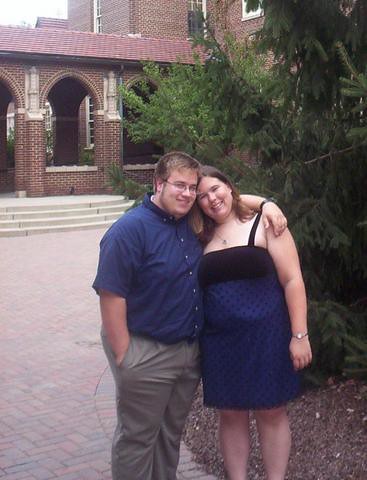I John 11:32-44 32 When Mary came where Jesus was and saw him, she knelt at his feet and said to him, "Lord, if you had been here, my brother would not have died." 33 When Jesus saw her weeping, and the Jews who came with her also weeping, he was greatly disturbed in spirit and deeply moved. 34 He said, "Where have you laid him?" They said to him, "Lord, come and see." 35 Jesus began to weep. 36 So the Jews said, "See how he loved him!" 37 But some of them said, "Could not he who opened the eyes of the blind man have kept this man from dying?" 38 Then Jesus, again greatly disturbed, came to the tomb. It was a cave, and a stone was lying against it. 39 Jesus said, "Take away the stone." Martha, the sister of the dead man, said to him, "Lord, already there is a stench because he has been dead four days." 40 Jesus said to her, "Did I not tell you that if you believed, you would see the glory of God?" 41 So they took away the stone. And Jesus looked upward and said, "Father, I thank you for having heard me. 42 I knew that you always hear me, but I have said this for the sake of the crowd standing here, so that they may believe that you sent me." 43 When he had said this, he cried with a loud voice, "Lazarus, come out!" 44 The dead man came out, his hands and feet bound with strips of cloth, and his face wrapped in a cloth. Jesus said to them, "Unbind him, and let him go."
When we hear this story, we create it in our minds eye from the view point of the narrator. We imagine this story as though we were standing next to the narrator. But I want to challenge you today to watch the story unfold from a different perspective, from inside the tomb. Close your eyes and imagine with me:
You are there, in the tomb with Lazarus. Even though your eyes are open and they dart from side to side, you still cannot see so much as the hand in front of your face. As you lift your hand to see if you can make out even its silhouette, you notice that the only sound you hear is the sound of your own heart beating faster and faster. Feeling along the wall, you make your way to what you presume is the entrance. Someone has placed a boulder in front of the entrance, and you certainly do not have the strength to move it. You make your way back to Lazarus’ side. As your hands fumble in front of you, searching for some sign of where you are, they happen to graze the grave cloths. Then faintly, in the distance you hear something
There are people on the outside. They are crying. Not just little tears, but giant, angry, loud sobs – the kind that society expects of the family of someone how has just died. They seem to be growing louder and louder. They are not going away any time soon either. They are going to be there for at least a week, wailing, sobbing, screaming. Mary is there with her sister Martha. Their voices ring out over the others. But soon there is another voice, a deeper one. Jesus is there too, sobbing right along with them.
It is one of the most human pictures that we have of Jesus. He is there in the place where so many of us have been – mourning the death of a loved one gone too soon. Other places in the scripture make it clear, this was Jesus’ good friend, someone he loved and cared about very much. Here is Jesus, the savior of the world, the messiah, weeping loudly over the death of a loved one.
So often in this life, we shed the same tears. Tears for a loved one who was taken from us before we were ready - maybe even before they were ready, but definitely too soon. We cry for lost parents and grandparents, for mentors, teachers, coaches and classmates. And we cannot help but to shed a tear over the memories of the times that we had together and that we want so desperately to reclaim.
This grief can be so overwhelming, so consuming that it becomes a tomb of its own. It can become a place which feels like the end of the line, like some point which we will never be able to move past. And it isn’t just grief. These tombs are all around us. We just call them by different names. We call them addiction, depression, melancholy, gluttony, racism, fear. The fact is that our sinful world has no shortage of tombs. No shortage of places that cut us off from the living, and leave us feeling dead inside. This is where Jesus comes in.
In our text today, Jesus’ actions do not stop with weeping. He steps out of the crowd of mourners and calls for something radical. “Take away the stone” Jesus said. Take away the stone? It is an order that defies logic, culture and custom. Surely the stench would be overpowering. Not to mention the idea of coming into contact with a corpse and being made ritually unclean. Even Martha, Lazarus’ sister thought this was a crazy idea. But then Jesus turned to Martha and said, “Did I not tell you that if you believed, you would see the Glory of God?” And with a loud voice he cried, “Lazarus, come out!”
In one short sentence Jesus broke death’s grip on Lazarus and brought him out of the tomb. All that were there that day caught a glimpse of God’s glory. They saw the one who made the dumb to speak and the lame to run perform an even greater miracle. They saw him usher a loved one out of the tomb.
Jesus didn’t stop with Lazarus’ tomb. He has come to each of our tombs as well -calling us each by name and offering a way out. You who are dead to depression, come out! Dead to addiction? Jesus says, come out! Dead to the crushing loneliness of an empty house or a lost loved one? Jesus says, come out! None of these can prevail against the overflowing power of Jesus. Even death itself no longer has the final word. It has been crushed underfoot and made subject to our risen Lord.
In Jesus’ raising of Lazarus, we get a glimpse at what is to come. We have a foretaste of the final victory which Jesus won on the cross. We’ve had the stone rolled away from our own tombs and been invited into the presence of Christ. And maybe, just for a moment, we can see all of those Saints who have gone before us and now live in God’s promise of eternal life.



No comments:
Post a Comment